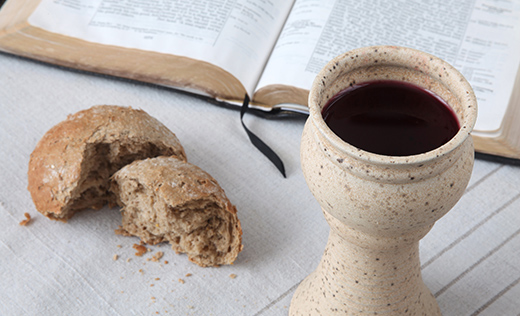God’s Reminders
October 2, 2016
|


He said to them, “Do you still not understand?”—Mark 8:21
My friend Bob Horner refers to Jesus as “the Master Reminder.” And that is good, because we are so doubting and forgetful. No matter how often Jesus met the needs of the people who came to Him when He was here on earth, His first disciples feared they would somehow be left in need. After witnessing miracles, they failed to understand the greater meaning the Lord wanted them to remember.
On a journey across the Sea of Galilee, the disciples realized they had forgotten to bring bread and were talking about it. Jesus asked them, “Do you still not see or understand? Are your hearts hardened? Do you have eyes but fail to see, and ears but fail to hear? And don’t you remember?” (Mark 8:17-18). Then He reminded them that when He fed five thousand people with five loaves, the disciples had collected twelve basketfuls of leftover pieces. And when He fed four thousand with seven loaves, they filled seven baskets with leftovers. Then “He said to them, ‘Do you still not understand?’” (v. 21).
The Lord’s miraculous provision for people’s physical needs pointed to the greater truth—that He was the Bread of Life and that His body would be “broken” for them and for us.
Every time we eat the bread and drink the cup during the Lord’s Supper, we are reminded of our Lord’s great love and provision for us. —David McCasland
In the Lord’s Supper, Jesus left us a great reminder of His sacrifice. Read about it in Matthew 26:17–30; Luke 22:14–20; 1 Corinthians 11:23–26.
Communion is the Lord’s reminder to us of His love and provision.
INSIGHT: In Mark 7-8, Mark records three stories that highlight Jesus’s ability to meet the needs of His followers: the exorcism of a demon-possessed girl (Mark 7:24-30), the healing of a deaf and mute man (7:31-37), and the feeding of four thousand people with seven simple loaves of bread (8:1-10). Mark tells these three stories in quick succession, underscoring Jesus’s ability to meet the needs of people in a variety of situations. The apostle John calls the miracles Jesus performed “signs.” Like all signs, they point to something. In the case of Jesus’s miracles, they point to His true identity. J.R. Hudberg
|

No comments:
Post a Comment